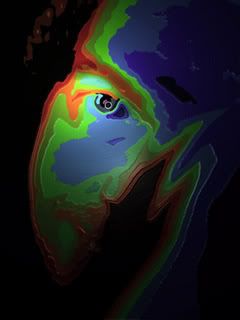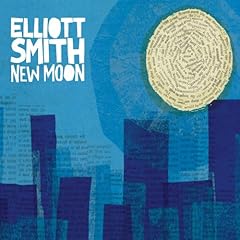1984

George Orwell was ahead of his time. he'd written Nineteen Eighty-Four in 1949. his dystopic story was the advent of "Big Brother" and a continuation of a style which later became the dictionary entry of "orwellian". at the time, he imagined a future England in which a totalitarian regime had risen to power and controlled every aspect of the lives of the citizens. the book was a 300 page nightmare of power gone wrong. the absolute corruption of absolute power .
after war breaks out, revolution overthrows the existing government. the newly instituted government, or Inner Party as they're called, takes over and reigns for nearly 40 years. they've established 3 classes of people. themselves being the Inner Party. the outer party, which carried out the orders of the inner party. and the proles, or the lower, uneducated working class. the outer and inner party were under constant surveillance by big brother. language is being rewritten to utter simplicity, to rid the world of emotion and expression. no one was ever permitted to speak against or even think ill towards the government, represented by the imaginary figurehead of "Big Brother". the children are raised as obedient spies, turning their own parents over to their deaths if they sway from the straight and narrow. doing so would lead to their certain abduction by the thought police, followed by torture, an inevitable confession and their eventual public execution. every home was fitted with a telescreen that watched and listened to its inhabitants at all times. the government figured out that the best system of control was a perpetual state of war. it ensured a need for constant labor, producing materials of war which were forever in demand yet had no benefit to the people quality of life, and forced a sense of patriotism.
our protagonist is Winston Smith, an outer party drone. he works each day changing history, correcting newspapers and books to reflect the views of Big Brother. without history, the people lose their memories. Winston, though, remembers some things differently. things that can't be which Big Brother claims as absolute truth. he begins posing questions in his own mind, thinking for himself, doubting his programmed hatred, and even begins writing in a journal he's acquired from an antique shop in a part of town he had no business being in. an act punishable by death. he's slowly waking up to the reality that's been hiding behind a mask.
amazingly, nearly 60 years ago, this book was viewed as a nightmarish fantasy novel. an impossible future but with its roots buried in the events of the time. Orwell was a socialist but condemned Stalin's totalitarian authority in Russia. much of his work, most famously in Animal Farm, dealt with that topic. a revolt to rise above the muck created by the leadership, only to create a more oppressive quagmire in the disguise of freedom. the scariest thing is how relevant this book is presently. the perpetuation of ignorance, political spin, big brother around every corner. using war as a means of distraction, fear and patriotic fervor.
its a pretty astounding book and a really quick read. its fairly terrifying and quite capable of opening an eye or two to the parallels happening in our own world's current state. there was a film made of it in 1984 in England, though its pretty difficult to track down. if you can find it, its worth your time. John Hurt gives a great performance and Roger Deakins' cinematography (known best for his camera work on some of the best Coen brothers' films) is breath taking. its also the most accurate book to film translation i've ever seen.
its most definitely a nightmarish novel, but i'm beginning to question the "fantasy" label attached to it.
after war breaks out, revolution overthrows the existing government. the newly instituted government, or Inner Party as they're called, takes over and reigns for nearly 40 years. they've established 3 classes of people. themselves being the Inner Party. the outer party, which carried out the orders of the inner party. and the proles, or the lower, uneducated working class. the outer and inner party were under constant surveillance by big brother. language is being rewritten to utter simplicity, to rid the world of emotion and expression. no one was ever permitted to speak against or even think ill towards the government, represented by the imaginary figurehead of "Big Brother". the children are raised as obedient spies, turning their own parents over to their deaths if they sway from the straight and narrow. doing so would lead to their certain abduction by the thought police, followed by torture, an inevitable confession and their eventual public execution. every home was fitted with a telescreen that watched and listened to its inhabitants at all times. the government figured out that the best system of control was a perpetual state of war. it ensured a need for constant labor, producing materials of war which were forever in demand yet had no benefit to the people quality of life, and forced a sense of patriotism.
our protagonist is Winston Smith, an outer party drone. he works each day changing history, correcting newspapers and books to reflect the views of Big Brother. without history, the people lose their memories. Winston, though, remembers some things differently. things that can't be which Big Brother claims as absolute truth. he begins posing questions in his own mind, thinking for himself, doubting his programmed hatred, and even begins writing in a journal he's acquired from an antique shop in a part of town he had no business being in. an act punishable by death. he's slowly waking up to the reality that's been hiding behind a mask.
its a pretty astounding book and a really quick read. its fairly terrifying and quite capable of opening an eye or two to the parallels happening in our own world's current state. there was a film made of it in 1984 in England, though its pretty difficult to track down. if you can find it, its worth your time. John Hurt gives a great performance and Roger Deakins' cinematography (known best for his camera work on some of the best Coen brothers' films) is breath taking. its also the most accurate book to film translation i've ever seen.
its most definitely a nightmarish novel, but i'm beginning to question the "fantasy" label attached to it.















.jpg)
1 comment:
Here comes a candle to light you to bed
here comes a chopper to chop off your head
- yeah I’d say you’ve got it pegged (nightmare)
Post a Comment